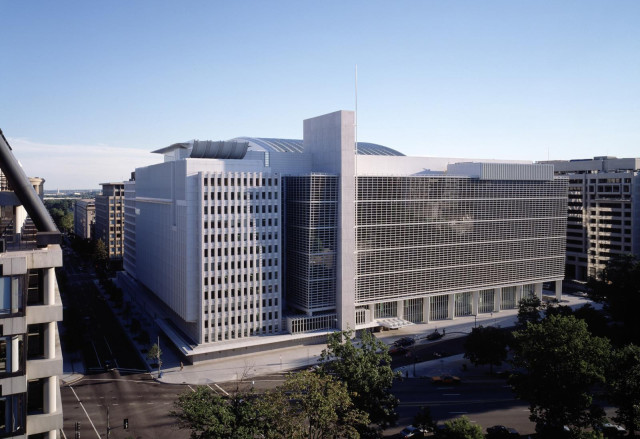The IIB took part in the meeting of the MFI WG ESS

In November 2018, the representatives of leading multilateral development institutions gathered in Washington, D.C. (U.S.A.) as part of a regular meeting of the Multilateral Financial Institutions Working Group on Environmental and Social Standards (MFI WG ESS). The IIB’s delegation was led by Mr. Ivan Beňovič, Senior Expert of the Department of International Relations and Communications.
The MFI WG ESS is an authoritative discussion platform established by development banks to discuss issues related to developing standards and methods of improving the environmental and social impact of projects financed by international financial institutions (IFIs). The group’s discussions are aimed at sharing the experiences of leading experts in the area of environmental and social standards.
The membership of the MFI WG ESS includes a range of large IFIs, such as the World Bank Group, the Asian Infrastructure Investment Bank (AIIB),the Asian Development Bank (ADB), the Black Sea Trade and Development Bank (BSTDB), the Inter-American Development Bank (IDB), the African Development Bank (AfDB), the Council of Europe Development Bank (CEB), the European Bank for Reconstruction and Development (EBRD), the European Investment Bank (EIB), the Nordic Investment Bank (NIB) and the Eurasian Development Bank (EDB).
At the last MFI WG ESS meeting in November, the experts discussed a variety of issues such as harmonization of the IFIs’ approaches towards evaluating projects from the point of view of their compliance with sustainable development criteria and the adoption of a unified set of standards for dealing with the environmental and social aspects of clients’ projects, which is all the more important for syndicated loans. The list of discussed topics also included reprisal and protection of complainants in countries with a low level of legal culture, combatting gender based violence, environmental and social issues related to financing palm oil production, measuring success in reversing the negative impacts of infrastructure projects on people’s livelihoods, risk management in countries and regions affected by Fragility, Conflict, and Violence (FCV), safeguards against the misuse of special purpose funds in on-lending activities, integrating biodiversity into sustainable infrastructure in large infrastructure projects, combatting the negative consequences of climate change and developing the banks’ vision statements in the area of promoting high environmental and social standards.
As part of the events of the working group, the participants shared the best practices of their banks’ operations in implementing high environmental and social standards accumulated over the previous several months.
In his presentation, the IIB’s representative emphasized key achievements of the IIB in this area. The IIB assesses the compliance of its investment initiatives with sustainable development criteria and gradually builds up its “green” project portfolio, promoting renewable energy and broad implementation of “clean” technologies as its strategic priorities. The IIB regularly provides large nature and water protection grants aimed at protecting the environment, combatting climate change and conserving biodiversity in its member states, and has supported important environmental programs in Mongolia, Slovakia, the Russian Federation, Hungary, Romania and Bulgaria. At present, the IIB is keen to scale up its Technical Assistance Fund, which supports preparation of projects that meet the criteria of sustainable development and environmental security. The importance of the IIB’s work in this direction was also recognized by the international community of development institutions when the IIB became a full-fledged member of the prestigious International Development Finance Club (IDFC) in October 2018.
The IIB intends to continue to actively participate in the MFI WG ESS activities and pursue a sustainable development dialogue with the leading development banks. In the meantime, the IIB will continue to improve its own approaches and methodologies in order to ensure compliance of its projects with international environmental and social standards.
